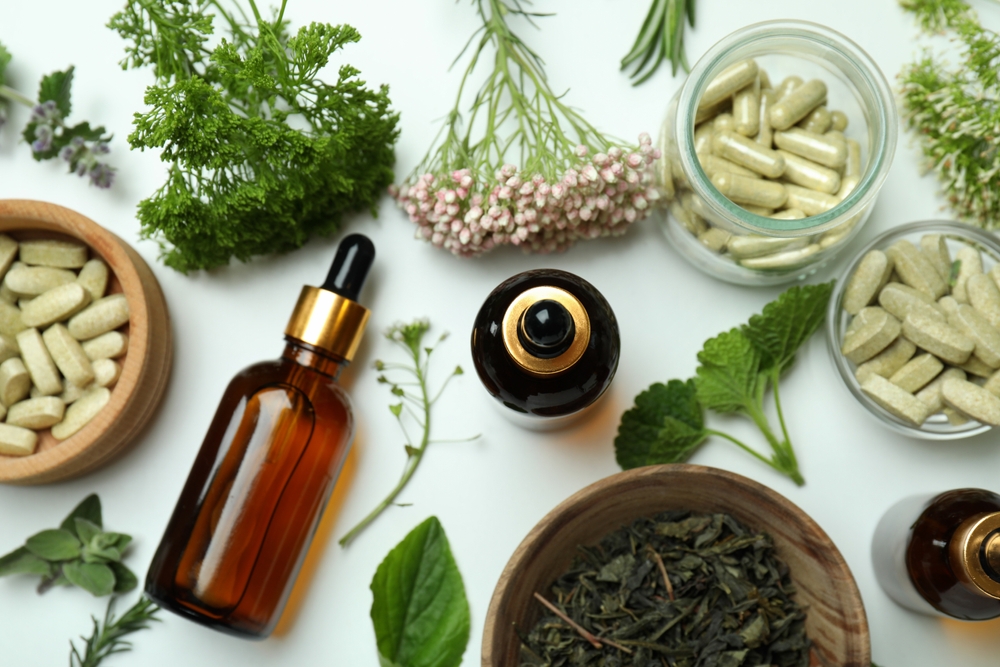In a contemporary society where artificial medicines and fast-action products continue to shape the world of health care, natural remedies endure their charm. The value of herbal remedies as a natural response to treating diseases and improving physical wellness is not new. To date, herbs have been part and parcel of health and healing, starting with ancient civilizations and modern-day wellness crusaders. Let’s set out on a trip to discover the magnificence of herbal supplements in our bodies!
Understanding herbal medicine
Herbal medicine, commonly referred to as phytotherapy, exploits natural plant substances that are used to prevent and treat ailments. In contrast to the isolated compounds of pharmaceutical drugs, herbal remedies are based on the complementary effects of several constituents naturally present in plants. This whole-body approach recognizes the elaborate reciprocation between the body and nature.

Championing Herbal Diversity
It is a vast world of herbal elements comprising different plants with various medicinal values. For example, ginger, long regarded as anti-inflammatory, can help in cases of stomach pain and nausea. The active compound in turmeric, curcumin, has remarkable antioxidant and anti-inflammatory properties, which makes it widely used for helping in the management of inflammation and general wellness.
Similarly, echinacea is heralded as an immune system-enhancing agent, while chamomile eases tension and helps with sleep. The given examples just barely scratch the tip of the iceberg, which is nature’s pharmacy, reflecting the wide range of remedies available to us from natural herbs.
The Science Behind Herbal Efficacy
Although the anecdotal evidence in favor of herbal treatments is undeniable, contemporary science is still untangling the physiological basis of their therapeutic effects. A considerable amount of critical research has proven many conventional applications of plants and identified their pharmacological characteristics.
Traditionally, some benefits of bitter melon, garlic, and lavender have been shown through studies to have anti-diabetic, cholesterol-lowering, and anxiety-relieving effects. Pharmacognosy developed by bridging the gap between ancient wisdom and modern science; by understanding the mechanisms of herbs, we can appreciate how they have a therapeutic effect on the body.
Integration into Daily Life
Using herbal remedies for human use as a part of our daily routine is a practical hobby and also contributes to the overall health of the person. Whether in the form of teas, tinctures, capsules, or topical applications, there are plenty of ways to utilize the medicinal properties of herbs.
Herbal teas provide a healing ritual that feeds the body and mind. From calming chamomile to animate peppermint, the range of flavors and advantages of dying-out infusions adhere to various needs and preferences. Herbal extracts and supplements, which offer people options for their target needs, can also be additions.
Empowering Self-Care
Even in herbal medicine, one of the more empowering tasks under its premises is self-care and empowerment. Through growing closer to nature and our bodies, we become active agents in our health journey. Trying out various herbs provides us with information about which ones work best for us, which ones we like, and which ones do not.
However, one should never take herbal therapy lightly. Americans consider many herbs safe when used correctly; however, the pharmacokinetic and dynamic actions of herbs may interfere with medicinal products and can result in an incompatible reaction with herbs among patients. The risks can be navigated by consulting with a qualified healthcare professional or herbalist to ensure desired results.
Honoring Traditional Wisdom
Our acceptance of herbal remedies follows a logical continuum that draws inspiration from our heritage by acknowledging the blessings of nature that passed our forebears to help them thrive. Many cultures and civilizations’ indigenous practices have enshrined and safeguarded lore about plant medicine, passed down from generation to generation.
The need to ground ourselves in these ancient practices is evident because our world today is very dynamic. Embracing the embrace of past wisdom with advancements in the contemporary provides a means to a track toward comprehensive health and prosperity.

Conclusion
Organic folk medicines prove a siren’s call when we are struggling with the intricacies of modern existence. It has been the quest of humanity, from ancient traditions to the most up-to-date research, to investigate the prepared remedies in the field of physical well-being on human health.
Through cultivating plants, we not only care for the physical bodies but also foster a spiritual and deeper understanding of the sustainable environment. Let us, as the watchdogs of our wellbeing, heed the counsel of old age and venture into learning, ably partnered by the comforting murmurs of Mother Nature’s drugstore.



